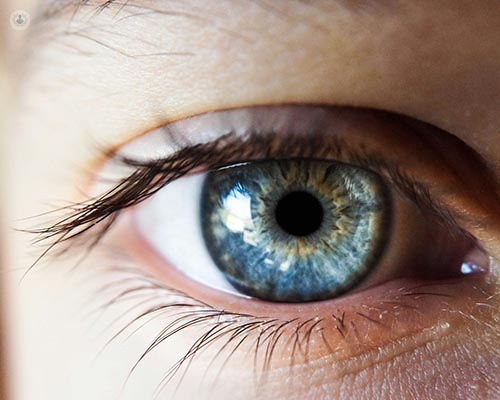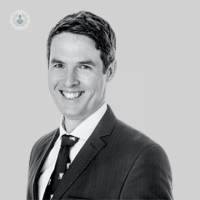Cataract surgery: what does it involve?
Written in association with:If left untreated, cataracts can significantly affect daily activities such as reading, driving, or recognising faces. The condition is progressive, meaning it worsens over time, potentially leading to blindness if not addressed. Thankfully, cataract surgery is a highly effective treatment that can restore vision. Leading consultant ophthalmic surgeon Mr Damian Lake explains the surgery, potential risks and what to expect during the recovery process.

What is a cataract?
Cataracts are a common eye condition where the lens of the eye becomes cloudy, leading to impaired vision. This cloudiness is due to the build-up of proteins in the lens that clump together, obstructing light from passing through clearly. While cataracts often develop with age, they can also result from other factors such as diabetes, eye injuries, or prolonged exposure to sunlight.
How is cataract surgery performed?
Cataract surgery is a straightforward and routine procedure usually performed on an outpatient basis. The most common method is called phacoemulsification. In this procedure, a tiny incision is made in the eye, and an ultrasonic device is used to break up the cloudy lens into small pieces. These pieces are then suctioned out, and a clear artificial lens, known as an intraocular lens (IOL), is implanted in place of the natural lens.
The entire surgery typically takes less than 30 minutes. Patients are awake during the procedure, but the eye is numbed with local anaesthesia, ensuring there is no pain. Mild sedation may also be provided to help the patient relax. The incision is self-healing and does not usually require stitches, allowing for a quicker recovery.
What are the different types of intraocular lenses (IOLs)?
There are several types of intraocular lenses available, each with its own benefits. Monofocal lenses are the most commonly used and are designed to provide clear vision at one distance, typically set for clear distance vision. Patients with monofocal IOLs may still need glasses for reading or other close-up tasks.
Multifocal lenses are designed to correct vision at multiple distances, reducing the need for glasses. These lenses can be beneficial for those who wish to have a greater range of vision without the dependence on spectacles. Another option is the toric lens, which is specifically designed to correct astigmatism, a common condition that causes blurred vision due to an irregularly shaped cornea.
Your ophthalmologist will discuss the best type of IOL for your specific needs based on your lifestyle and visual requirements.
What should you expect during recovery?
Recovery from the surgery is normally rapid, and complications are unlikely to occur. The majority of patients notice an improvement in their vision within a few days. However, complete healing can take several weeks. It is normal to experience mild discomfort, itching, and sensitivity to light immediately after the procedure.
Are there any risks or complications?
While cataract surgery is generally safe, as with any surgical procedure, there are potential risks and complications. These may include infection, bleeding, inflammation, or an increase in intraocular pressure. In rare cases, there might be issues with the implanted lens, such as displacement or incorrect positioning.
It is important to discuss any concerns with your ophthalmologist, who can provide reassurance and address potential risks specific to your health and medical history.
To book a consultation with Mr Lake, simply visit his Top Doctors profile today.


